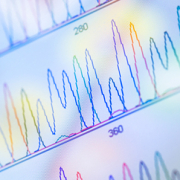Manipulation of the microbiome
Exploring the gut microbiome and how research into this ‘useful snapshot of the microbiota’ could change our lives
Gut microbiomes have found themselves the focus of recent scientific research. Scientists are now keen to explore their potential impact on health and disease, presenting the most comprehensive work on the human microbiome to date.
Variations and influences
The microbiome refers to the combined genomes of an individual’s microbiota – the vast populations of microbes living on and in our body. Since there may be literally trillions of microbes and thousands of different species, grappling with the sheer size of the microbiome for genomic analysis is quite a challenge, but it provides a useful snapshot of the microbiota.
The microbiome can vary significantly between individuals (as well as in different parts of the body, and over time), and there is considerable interest in how this may affect health. The gut microbiome is of greatest interest. Its composition varies between people, and is markedly different among patients with certain diseases – chronic colitis, inflammatory bowel syndrome (IBS) and other forms of autoimmunity such as type 1 diabetes, as well as obesity.
Diet is known to influence the gut microbiome, as is medication. The use of antibiotics to combat infections caused by harmful, pathogenic bacteria also devastates the normal microbiome, and there is evidence that this can actually increase susceptibility to further infection, an undesirable situation.
Am I normal?
New research has reported findings from studies of two separate groups of over 1,000 healthy Belgian and Dutch people, in an attempt to establish what constitutes a typical or baseline ‘healthy microbiome’. Results published in Science found that a number of factors have a critical impact on the gut microbiome, notably diet (especially fibre intake) and antibiotic use, but also hormonal treatments, anti-inflammatory and antihistamine drugs.
Some diverting headlines were generated from the discovery that chocolate, wine and beer consumption exerted an influence; anything that increases the diversity of the microbiota appears to have a generally beneficial effect on health.
More compelling from a clinical perspective was the finding that transit time – how long it takes to digest food – had a significant impact on the microbiome, and hence potentially also on health. Transit time is commonly reduced in some conditions, notably Parkinson’s disease, so this could be a further factor influencing the overall health of patients.
Manipulating the microbiome
Surprisingly, no association was found between the method of birth delivery (vaginal or caesarean). Previous research has indicated that caesarean-born children have a different early microbiome from that of vaginal-born children, which could account for observed differences in the risk of asthma, obesity and allergies. This has led to serious proposals that caesarean-born babies should undergo ‘vaginal swabbing’ to give them a healthier, natural microbiome, although currently there is insufficient evidence of benefit to support this practice.
It is still early days for our understanding of the microbiome in health and disease; the latest research is only a step towards establishing a baseline picture of a healthy microbiome. Clinical manipulation of the microbiome is of course the ultimate goal; it has already been shown that a faecal microbiota transplant (FMT) from healthy ‘donors’ can be an effective treatment for severe IBS caused by C.difficile infection.
This approach is being investigated as a potential treatment for a range of conditions, not least obesity. Science may offer a more palatable alternative though: researchers hope to create a pill containing beneficial bacteria to serve the same purpose as FMT.
–









